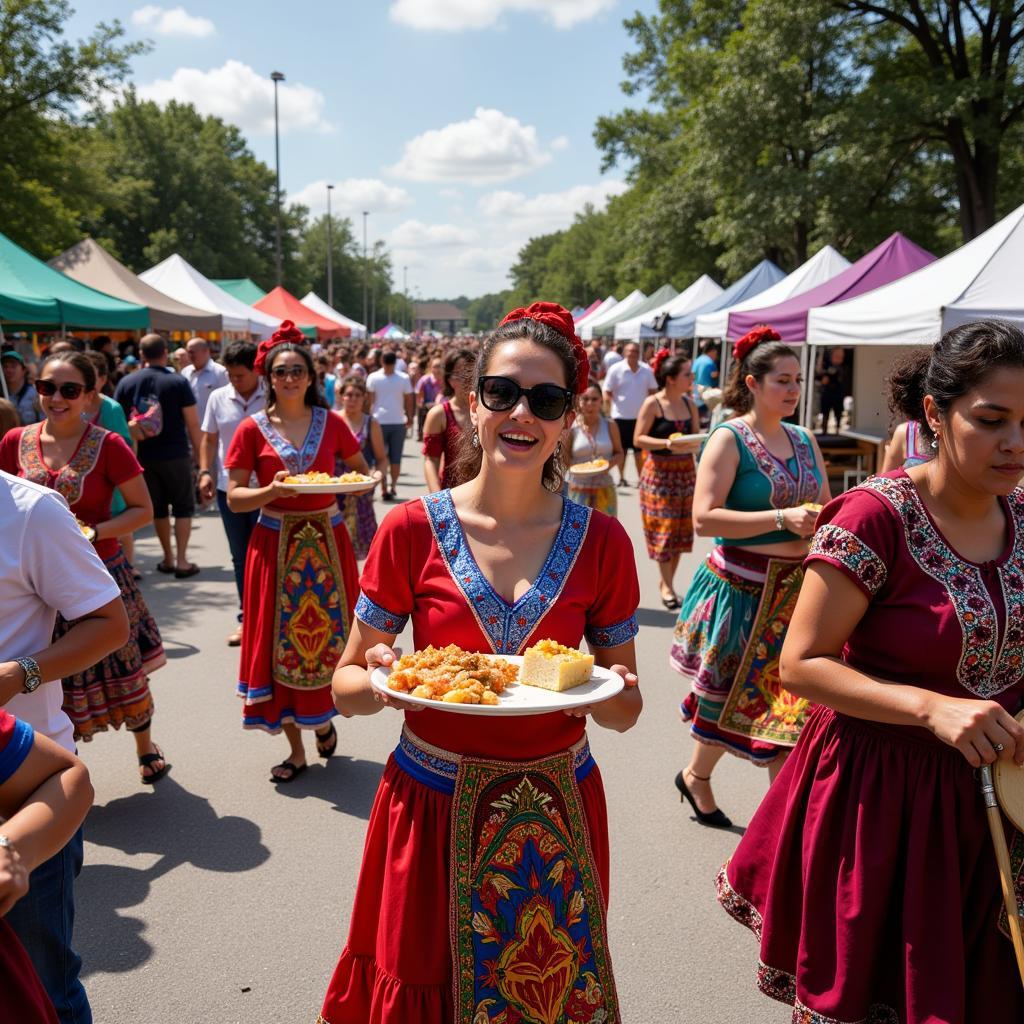Unveiling the Warmth: Your Guide to African Autumn Tea
African Autumn Tea, a phrase that conjures images of vibrant hues, earthy aromas, and the gentle transition from summer’s heat to cooler days. While “African autumn tea” might not be a widely recognized term, it offers a unique gateway to exploring the diverse world of African beverages enjoyed during this special time of year. Imagine sipping a warm infusion crafted from indigenous herbs, spices, and fruits, each ingredient echoing the continent’s rich biodiversity and ancient wisdom.
Beyond Rooibos: Discovering the Variety of African Autumn Teas
When we think of African tea, our minds often jump to rooibos, the beloved South African herbal infusion. And rightfully so! Rooibos, with its naturally sweet and earthy notes, is a delightful caffeine-free choice. Yet, the world of African beverages extends far beyond, encompassing a fascinating array of flavors and traditions perfect for autumn.
Let’s delve into some remarkable examples:
- Hibiscus Tea (Bissap, Zobo): This vibrant red infusion, made from dried hibiscus flowers, is popular across West Africa. Its tart, cranberry-like flavor is incredibly refreshing, served hot or cold.
- Moroccan Mint Tea: A symbol of hospitality in Morocco, this green tea is prepared with fresh spearmint leaves and sugar. The result is a beautifully aromatic and invigorating drink, often enjoyed after meals.
- Lemongrass and Ginger Tea: This invigorating blend is a common remedy for colds and flu in many African countries. The citrusy lemongrass paired with the spicy kick of ginger creates a warming and soothing beverage.
African Autumn Tea: A Celebration of the Harvest
Autumn in Africa is a time of harvest, a period when the earth offers its bounty after the long days of summer. It’s a time to celebrate nature’s gifts and to prepare for the coming cooler months.
Many traditional African teas incorporate seasonal ingredients, reflecting this connection to the land. Think of teas infused with:
- Baobab Fruit: This superfruit, with its tangy citrus flavor, is rich in Vitamin C, making it a perfect addition to autumn teas.
- Honeybush: This South African plant, related to rooibos, offers a slightly sweeter, honey-like flavor profile, ideal for a cozy autumn evening.
The Ritual of Tea in African Culture
In many African cultures, tea is far more than just a drink. It’s an integral part of daily life, woven into social gatherings, ceremonies, and moments of quiet reflection.
Offering tea to a guest is a sign of respect and hospitality. The preparation and serving of tea often follow specific customs, passed down through generations.
For example, in some cultures:
- The youngest person may be tasked with serving the tea, a gesture of honor and respect for elders.
- Tea is traditionally served in small glasses, allowing for multiple refills and encouraging conversation.
- The act of sharing tea fosters a sense of community and connection, strengthening bonds between people.
Embracing the Spirit of African Autumn Tea
While the term “African autumn tea” might be a novel concept, it opens a window into the rich tapestry of African beverage traditions. It’s an invitation to explore the diversity of flavors, ingredients, and rituals that make each cup a unique and sensory experience.
As the days grow shorter and the air turns cooler, embrace the warmth and spirit of African autumn tea. Seek out these unique blends, savor their aroma, and allow yourself to be transported to the heart of Africa.
FAQ: African Autumn Tea
1. Where can I find authentic African teas?
Many online retailers specialize in sourcing high-quality African teas and herbs. You can also explore African grocery stores or specialty tea shops in your area.
2. Are African teas caffeine-free?
While some herbal teas, like rooibos and honeybush, are naturally caffeine-free, others, like Moroccan mint tea, are made with a base of green tea and contain caffeine.
3. Can I add sweeteners to African teas?
Absolutely! Many Africans enjoy their tea with sugar, honey, or even dates for natural sweetness.
Exploring Further:
- Learn more about the North African countries list and their unique tea traditions.
- Discover the beauty of an African boutique hotel Boksburg and immerse yourself in South African culture.
- Find out about African countries cheaper than India and plan your next budget-friendly adventure.
If you need any assistance, please feel free to reach out to us!
Phone Number: +255768904061
Email: [email protected]
Address: Mbarali DC Mawindi, Kangaga, Tanzania.
We are available 24/7 to assist you.

